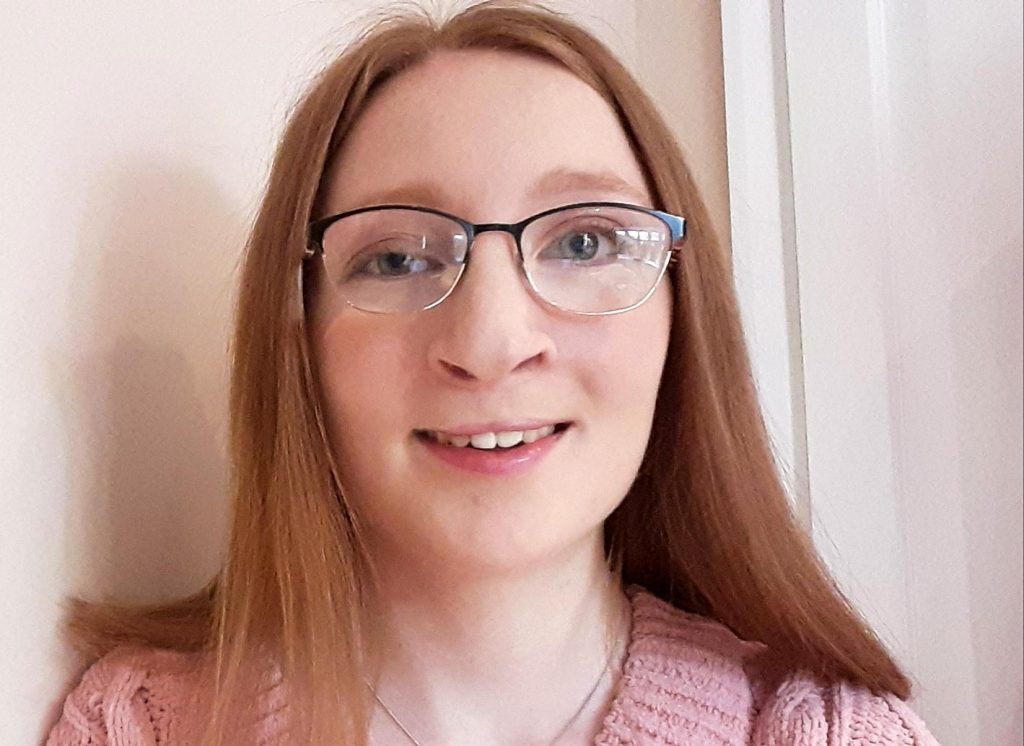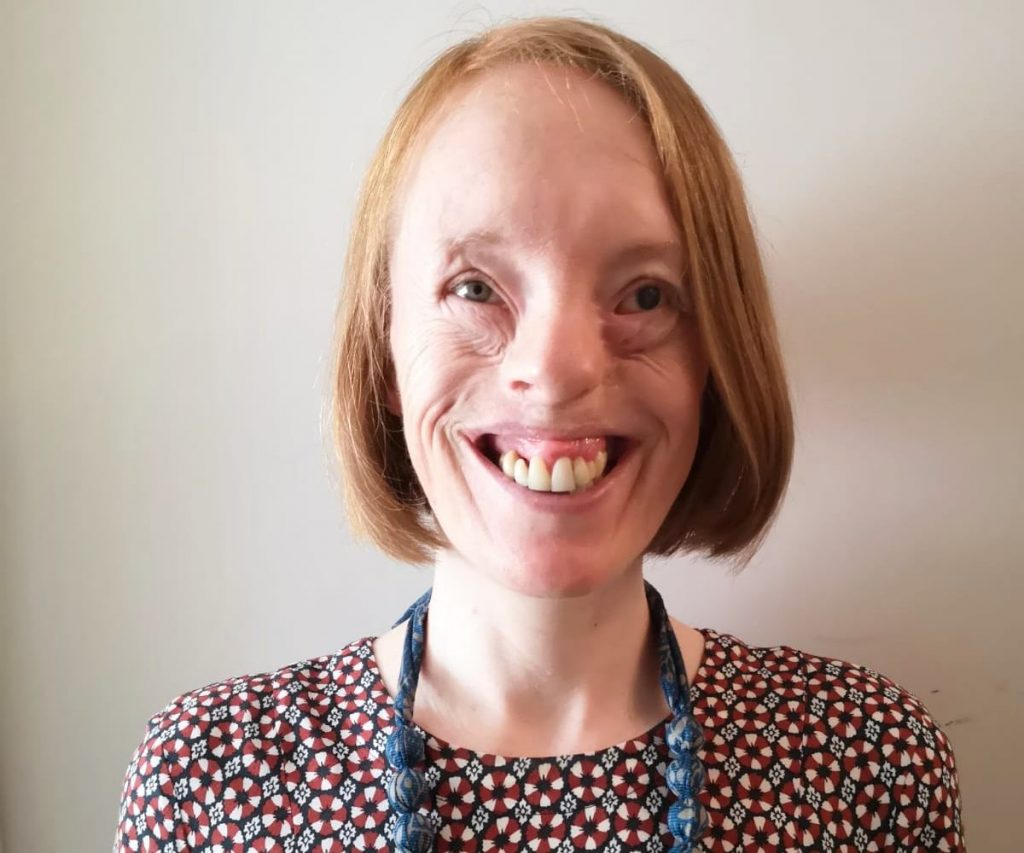The COVID-19 pandemic has had a significant impact on children and how they feel about their appearance, with just one in four (25%) feeling confident about how they look, a fall from 39% in 2018.
For children with a visible difference such as a scar, mark or condition, the impact is even greater. Following the pandemic twice as many children with a visible difference say they are unhappy compared to 2019, and they are more likely than their peers to feel anxious about the future (42% versus 30%).
Worryingly, only one in four children would like to be friends with someone with a visible difference, a fall from 30% in 2018. School is also a much tougher environment for many young people with a visible difference compared to their peers.

Bronwen, Changing Faces campaigner.
One in three have had mean comments about how they look and for one in four, this has escalated to some form of bullying. It is therefore no surprise that they are more likely than their classmates to feel worried or anxious about starting a new school (40% versus 29%).
Changing Faces CEO Heather Blake says: “We live in an image-obsessed society. For children and young people who have disfigurements, scars, marks and conditions that make them look different, the reality is that they often face a daily battle for acceptance. They are contending with stares, comments and bullying in school and public places.
“I find it truly shocking that we’ve seen a decrease in children saying that they would like to be friends with someone who has a visible difference. It’s clear that we’ve got to take urgent action to create a more inclusive and positive environment that supports children and young people to value and celebrate difference.”
Early intervention and counselling changes lives, helping children deal with anxieties about their appearance and learning skills to help them deal with other people’s reactions.
We’ve announced a package of measures to better support children, young people, and the families of those who have a visible difference. This includes our A World Of Difference classroom and assembly resources to help teachers and pupils talk about appearance and looking different. Training and development modules have also been produced so trainee and qualified teachers can better understand the challenges children with visible differences may face. These education resources have been developed thanks to the VTCT Foundation, whose aim is to support a better future for people with disfigurement.
Bronwen, who is 17 years old and a Changing Faces champion, says: “As a young person with a visible difference, I often experience people staring and making rude comments. This is especially the case at school and in the past, it has been very difficult to deal with. This is why the resources from Changing Faces are so important. They will help to educate young people about visible differences and hopefully this will mean less bullying in schools.”
“We live in an image-obsessed society. For children and young people who have disfigurements, scars, marks and conditions that make them look different, the reality is that they often face a daily battle for acceptance.
“I was able to access one-to-one support from Changing Faces and I found it really helpful. Not only did I have the chance to talk to someone about my worries and concerns, I also learnt some valuable techniques for coping with comments and staring. The sessions helped me to gain more confidence and now I am speaking out because I want everyone with visible differences to be able to live the life they want to lead.”
Following funding awarded by the Garfield Weston Foundation, we have also been able to expand our life-changing counselling and wellbeing support service for children and young people with a visible difference across the UK. Now more children and families will be able to access one-to-one counselling, wellbeing support and group workshops.

Dr Amanda Bates, Changing Faces ambassador
Dr Amanda Bates, a Changing Faces ambassador says: “I am delighted that more children and families across the UK will be able to access this unique support. Early intervention and counselling changes lives, helping children deal with anxieties about their appearance and learning skills to help them deal with other people’s reactions. Currently there is little to no support of this type available from the NHS, which is why services like these from Changing Faces are so important.”
If you’d like to find out more about the support available for children and young people, including our free counselling sessions, contact our Support & Information line.
You can help us reach more schools by sharing this page with a school or teacher you know.